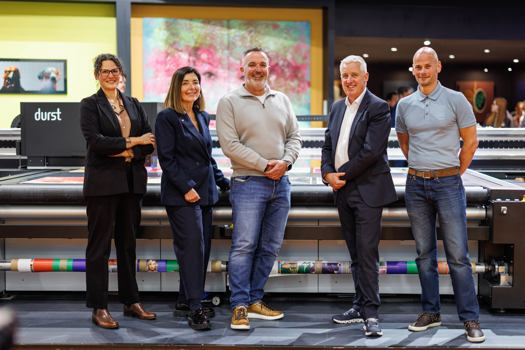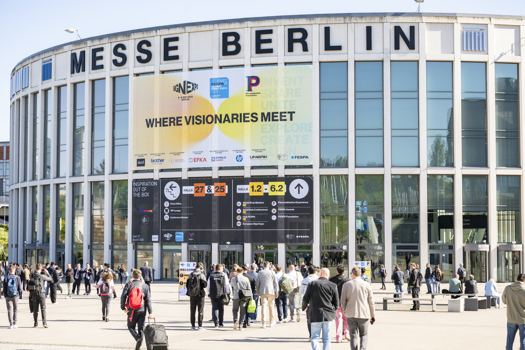The manufacturer hosted a joint international customer event last month with automotive supplier Ritzi Lackiertechnik at the latter’s headquarters in Tuningen, at which it showed off the possibilities of the technology to around 40 participants from the automotive industry and associated sectors.
The event featured expert presentations as well as live demonstrations to show attendees how objects with various different substrates, surface properties and shapes can be custom finished quickly and cost-efficiently to meet automotive manufacturers’ strict requirements.
Ritzi has been using an Omnifire 1000 for around a year to print series parts including trims, switches, dashboards and other components for customers from the automotive industry.
The business has integrated the system into its industrial production process, significantly increasing its productivity and quality compared to its previously used method.
“The needs of our premium automotive customers regarding the customised decoration of interior accessories are understandably exceptionally challenging,” said managing director Günter Ritzi.
“With Omnifire technology and support from Heidelberg, we’ve implemented an industrial solution that makes us better, faster, and more cost-effective.”
The Omnifire 1000 and its smaller sibling the Omnifire 250 can be used to print onto customised three-dimensional objects of any shape made from a wide variety of materials, enabling brands and industrial production companies to custom enhance high-quality mass-produced items to reach consumers on a personal level.
Bespoke versions of the Omnifire are also available from Heidelberg, for printing directly onto larger objects such as planes or trains. Rather than being an enclosed machine, in this case a robotic inkjet head system would move around the object it is printing onto.
A Heidelberg spokesperson told PrintWeek that the number of worldwide installations of the Omnifire is now into “double digits”.
Early adopters include German retailer MyMuesli, which uses the machine to produce personalised tubes of muesli, and Druckhaus Mainfranken, one of the print partners of German web-to-print business Flyeralarm, which has been using the kit to print onto promotional footballs.
“The individualisation of mass goods is a trend in every industry. There are a lot of consumer companies who are looking for a solution to cost-effectively individualise their products,” said the spokesperson, who added Omnifire projects are also currently underway in the US, where a company has taken on a machine to produce gifts for events, as well as elsewhere in the automotive industry.
Last year Heidelberg demonstrated the Omnifire at the IAA 2017 motor show in Frankfurt. The technology was unveiled in 2014 and shown for the first time at InPrint in 2015.










